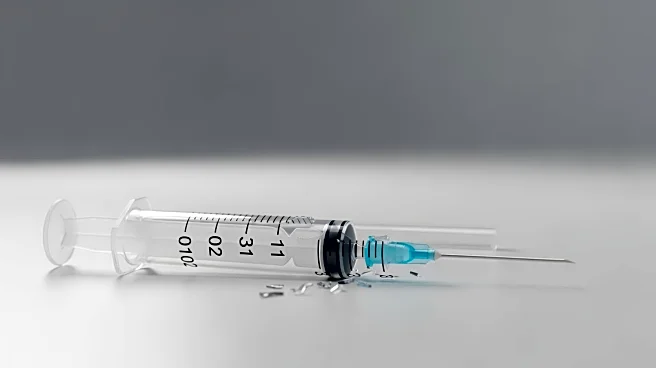What's Happening?
Robert F. Kennedy Jr., appointed as the U.S. Health Secretary by President Trump, has been accused of undermining vaccine science and public health. Despite promises during his confirmation hearings to maintain existing vaccine approval systems, Kennedy has made
changes that critics say endanger public trust in vaccines. His actions include altering the CDC's Advisory Committee on Immunization Practices and promoting skepticism about vaccine safety. These changes have raised concerns about the potential resurgence of vaccine-preventable diseases, as vaccination rates decline and public confidence wanes.
Why It's Important?
Kennedy's approach to vaccine policy has significant implications for public health in the U.S. By challenging established vaccine science, he risks reversing progress in controlling infectious diseases. The potential resurgence of diseases like measles and whooping cough could lead to increased healthcare costs and preventable deaths. The controversy also affects public trust in health agencies, highlighting the need for evidence-based policies to protect public health. Critics argue that Kennedy's actions could undermine decades of successful vaccination efforts.
What's Next?
The debate over vaccine policy under Kennedy's leadership is likely to continue, with potential legal and political challenges. Health experts and policymakers may push for a review of Kennedy's decisions and advocate for restoring scientific integrity in vaccine recommendations. The impact on public health and vaccination rates will be closely monitored, with stakeholders urging transparency and accountability in health policy. The situation may also influence future appointments and policies within the Department of Health and Human Services.
Beyond the Headlines
Kennedy's tenure raises ethical and legal questions about the role of personal beliefs in public health policy. The dismissal of experts and reliance on anecdotal evidence over scientific data could undermine the credibility of health agencies. The situation highlights the importance of maintaining scientific integrity and transparency in health policy decisions, especially in the face of misinformation and public skepticism.















